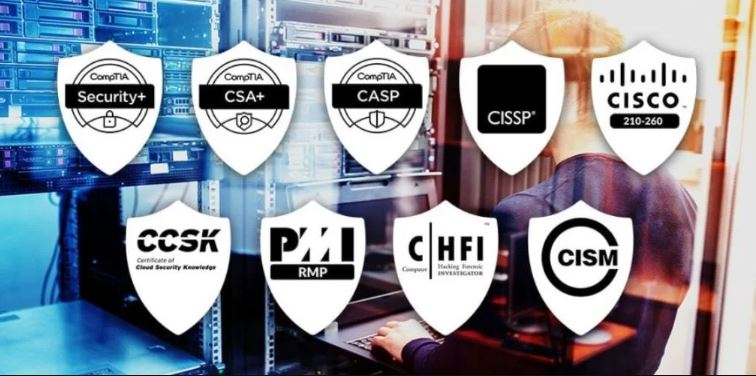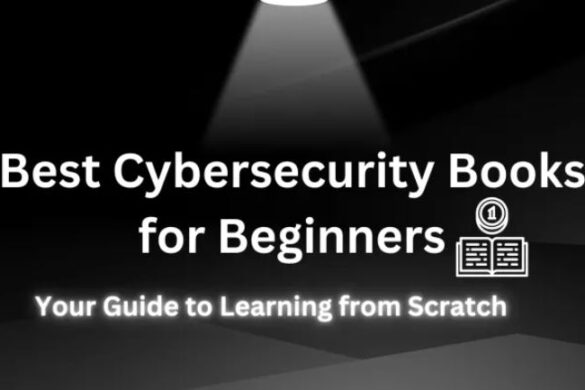The digital age has brought incredible opportunities for businesses and individuals, but it has also introduced significant risks. Cybercrime is at an all-time high, and organizations are investing heavily in cybersecurity to protect sensitive data and infrastructure. One of the best ways for professionals to stand out in this competitive field is by obtaining cybersecurity certification programs.
This detailed guide will explore what cybersecurity certifications are, why they matter, the most recognized certifications worldwide, their benefits, costs, and how to choose the best one for your career path.
What Are Cybersecurity Certification Programs?
Definition of Certification Programs
Cybersecurity certification programs are structured training and examination processes designed to validate a professional’s skills in information security, ethical hacking, risk management, and network defense.
Purpose of Cybersecurity Certifications
The main purpose of these programs is to provide standardized proof of competency, ensuring professionals can protect systems from cyber threats.
Why Are Cybersecurity Certifications Important?
Career Advancement
Certifications give professionals an edge in the job market by proving their expertise.
Employer Confidence
Hiring managers often prefer or require certifications when selecting candidates for critical security roles.
Industry Recognition
Certifications like CISSP, CEH, and CompTIA Security+ are recognized globally.
Continuous Learning
These programs push professionals to stay updated with the latest trends, vulnerabilities, and security practices.
Key Benefits of Cybersecurity Certification Programs
Higher Salaries
Certified cybersecurity experts often earn more than their non-certified peers.
Expanded Job Opportunities
Roles like penetration tester, security analyst, and SOC engineer often require certifications.
Networking and Community
Many certifications come with access to exclusive professional communities.
Hands-On Skills
Practical labs and simulations help professionals gain real-world experience.
Categories of Cybersecurity Certifications
Entry-Level Certifications
Designed for beginners with little to no experience.
-
CompTIA Security+
-
Cisco Certified CyberOps Associate
Intermediate Certifications
For professionals with some background in IT or cybersecurity.
-
CEH (Certified Ethical Hacker)
-
GSEC (GIAC Security Essentials)
Advanced Certifications
For experienced professionals aiming for leadership or specialist roles.
-
CISSP (Certified Information Systems Security Professional)
-
CISM (Certified Information Security Manager)
Popular Cybersecurity Certification Programs
CompTIA Security+
-
Level: Entry-level
-
Focus: Basic cybersecurity knowledge, network security, and risk management
-
Why It’s Valuable: Great starting point for beginners
CEH (Certified Ethical Hacker)
-
Level: Intermediate
-
Focus: Penetration testing, ethical hacking tools, and techniques
-
Why It’s Valuable: Recognized worldwide for hacking and penetration testing skills
CISSP (Certified Information Systems Security Professional)
-
Level: Advanced
-
Focus: Information security leadership, governance, and risk management
-
Why It’s Valuable: Highly respected for senior roles
CISM (Certified Information Security Manager)
-
Level: Advanced
-
Focus: Management of security programs, governance, compliance
-
Why It’s Valuable: Preferred for managerial positions
OSCP (Offensive Security Certified Professional)
-
Level: Advanced
-
Focus: Practical penetration testing, exploit development
-
Why It’s Valuable: Known as one of the toughest hands-on certifications
Cisco CyberOps Associate
-
Level: Entry-level
-
Focus: Security operations center (SOC) skills
-
Why It’s Valuable: Great for beginners aiming for SOC roles

How to Choose the Right Cybersecurity Certification
Consider Your Career Goals
-
Beginner: Start with CompTIA Security+
-
Penetration Testing: Go for CEH or OSCP
-
Management: Pursue CISSP or CISM
Evaluate Industry Requirements
Research job postings in your region to see which certifications employers value most.
Cost and Time Commitment
Some certifications are more expensive and time-intensive than others (e.g., CISSP vs. Security+).
Costs of Cybersecurity Certifications
Entry-Level Costs
-
CompTIA Security+: ~$370 exam fee
-
Cisco CyberOps: ~$300 exam fee
Intermediate Costs
-
CEH: ~$1,200 – $1,500
-
GSEC: ~$1,700
Advanced Costs
-
CISSP: ~$749 exam fee
-
OSCP: ~$1,499 for exam and training package
Career Paths with Cybersecurity Certifications
Entry-Level Roles
-
IT Support Specialist with Security Focus
-
Junior Security Analyst
-
SOC Analyst
Intermediate Roles
-
Ethical Hacker
-
Penetration Tester
-
Incident Response Analyst
Senior-Level Roles
-
Security Architect
-
Cybersecurity Manager
-
Chief Information Security Officer (CISO)
Salary Expectations for Certified Cybersecurity Professionals
-
CompTIA Security+ Holders: $55,000 – $75,000 annually
-
CEH Certified: $80,000 – $100,000 annually
-
CISSP Certified: $110,000 – $150,000 annually
-
OSCP Professionals: $90,000 – $130,000 annually
Tips for Succeeding in Cybersecurity Certification Programs
Build a Strong Foundation
Understand networking, operating systems, and basic IT skills before starting.
Practice in Labs
Use virtual labs or platforms like TryHackMe and HackTheBox.
Join Study Groups
Engage with online communities and forums to share knowledge.
Stay Updated
Follow cybersecurity blogs, news sites, and official certification updates.
Future of Cybersecurity Certification Programs
Integration with AI and Cloud Security
As technology evolves, certifications will adapt to cover areas like artificial intelligence and cloud security.
Increasing Demand
Cybersecurity roles are expected to grow by more than 30% over the next decade.
Continuous Evolution
Programs will require professionals to recertify and keep up with emerging threats.
Conclusion
Cybersecurity certification programs are more than just credentials; they are gateways to knowledge, career advancement, and professional recognition. Whether you are a beginner starting with CompTIA Security+ or an experienced professional pursuing CISSP, there’s a certification tailored to your goals.
Investing in the right certification not only enhances your skills but also makes you a valuable asset in the fight against cybercrime. In today’s digital world, certifications are no longer optional—they are essential.





